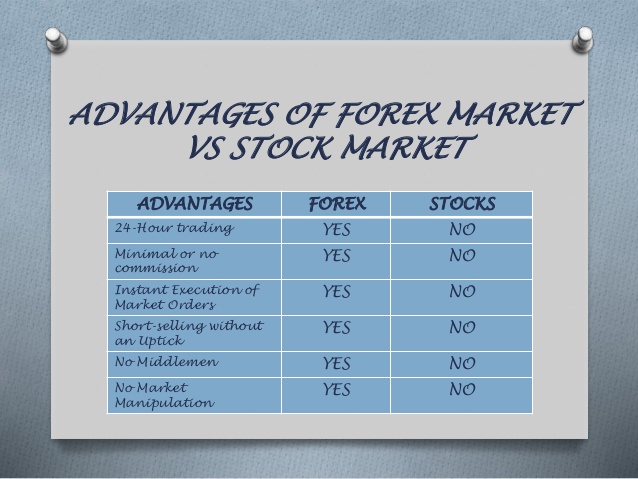
There are several different types of REITs. These include hotel and motel REITs; equity REITs; non-tradedREITs; hybrid REITs; and hotel and motel RETs. Let's take a closer look at each one to help you decide what type of investment you should make. These types can also been categorized based on their tax status. Listed below are some of the main differences between each one. Each of these four types has a detailed description.
Equity REITs
There are many benefits of investing in Equity REITs. These funds invest in many REITs. Because the company pays large dividends it makes sense for them to be held in a tax-advantaged bank account. You can also hold REITs in IRAs so that distributions can be delayed for tax purposes. REITs offer diversification and risk reduction. Mutual funds and ETFs allow you to invest with minimal or no effort in REITs.

Non-traded REITs
Non-traded REITs can be an investment option for diversification and professional management. Non-traded REITs can be purchased with a very small capital investment. Non qualified accounts start at $5,000. These companies present significantly higher risk than public REITs. Therefore, it is crucial to read the prospectus carefully before investing.
Hotel & motel REITs
These REITs, which are hotel & motel REITs, are one of the least lucrative real estate asset types. They trade at constant discounts to REIT averages and have outperformed C-Corp counterparts. The margins of 25-30% EBIT are also lower than that of the rest in the real-estate sector. The hotel REITs have been able to manage rising expenses. Their capex requirements are higher than the industry's average of 15%.
Hybrid REITs
While mortgage-focused REITs make most of their income from property, hybrid REITs are not based on real estate, but instead invest in mortgage-backed securities. These hybrid REITs can be used to hedge against the risk of real estate investments. Hybrid REITs combine the benefits of equity and mortgage REITs. They are also less volatile and more liquid than publicly traded REITs. Find out more about hybrid REITs.

Retail REITs
Investors frequently ask this question when they buy retail REITs. Before you invest in any retail real-estate investment trust (REIT), these are the most important questions to ask. Most common answers include net operating income, adjusted funds from operation, and funds from operations. These metrics provide a measure of the operating efficiency and financial performance of retail REITs. Understanding dividend payments can also be aided by funds from operations. Let's examine each of these categories and discover how they can assist you in deciding whether a retail REIT worth investing in.
FAQ
What is a Stock Exchange, and how does it work?
A stock exchange is where companies go to sell shares of their company. This allows investors to purchase shares in the company. The price of the share is set by the market. The market usually determines the price of the share based on what people will pay for it.
Companies can also raise capital from investors through the stock exchange. Investors give money to help companies grow. Investors buy shares in companies. Companies use their money for expansion and funding of their projects.
A stock exchange can have many different types of shares. Some shares are known as ordinary shares. These are most common types of shares. These shares can be bought and sold on the open market. Stocks can be traded at prices that are determined according to supply and demand.
There are also preferred shares and debt securities. When dividends are paid, preferred shares have priority over all other shares. A company issue bonds called debt securities, which must be repaid.
What's the difference between marketable and non-marketable securities?
The principal differences are that nonmarketable securities have lower liquidity, lower trading volume, and higher transaction cost. Marketable securities can be traded on exchanges. They have more liquidity and trade volume. They also offer better price discovery mechanisms as they trade at all times. This rule is not perfect. There are however many exceptions. For instance, mutual funds may not be traded on public markets because they are only accessible to institutional investors.
Non-marketable securities tend to be riskier than marketable ones. They usually have lower yields and require larger initial capital deposits. Marketable securities are typically safer and easier to handle than nonmarketable ones.
A large corporation may have a better chance of repaying a bond than one issued to a small company. Because the former has a stronger balance sheet than the latter, the chances of the latter being repaid are higher.
Marketable securities are preferred by investment companies because they offer higher portfolio returns.
Can bonds be traded
Yes, they are. You can trade bonds on exchanges like shares. They have been trading on exchanges for years.
They are different in that you can't buy bonds directly from the issuer. They must be purchased through a broker.
Because there are less intermediaries, buying bonds is easier. This means that you will have to find someone who is willing to buy your bond.
There are many kinds of bonds. Some pay interest at regular intervals while others do not.
Some pay quarterly interest, while others pay annual interest. These differences make it easy to compare bonds against each other.
Bonds are very useful when investing money. You would get 0.75% interest annually if you invested PS10,000 in savings. If you were to invest the same amount in a 10-year Government Bond, you would get 12.5% interest every year.
You could get a higher return if you invested all these investments in a portfolio.
How are Share Prices Set?
Investors who seek a return for their investments set the share price. They want to make a profit from the company. So they purchase shares at a set price. Investors make more profit if the share price rises. If the share price goes down, the investor will lose money.
An investor's primary goal is to make money. This is why investors invest in businesses. It allows them to make a lot.
What is a bond?
A bond agreement between two parties where money changes hands for goods and services. It is also known as a contract.
A bond is typically written on paper and signed between the parties. The document contains details such as the date, amount owed, interest rate, etc.
The bond is used for risks such as the possibility of a business failing or someone breaking a promise.
Bonds can often be combined with other loans such as mortgages. This means that the borrower has to pay the loan back plus any interest.
Bonds are used to raise capital for large-scale projects like hospitals, bridges, roads, etc.
A bond becomes due upon maturity. This means that the bond's owner will be paid the principal and any interest.
Lenders lose their money if a bond is not paid back.
What is security on the stock market?
Security is an asset that generates income for its owner. Most common security type is shares in companies.
A company may issue different types of securities such as bonds, preferred stocks, and common stocks.
The earnings per shares (EPS) or dividends paid by a company affect the value of a stock.
You own a part of the company when you purchase a share. This gives you a claim on future profits. If the company pays a payout, you get money from them.
You can always sell your shares.
Statistics
- Individuals with very limited financial experience are either terrified by horror stories of average investors losing 50% of their portfolio value or are beguiled by "hot tips" that bear the promise of huge rewards but seldom pay off. (investopedia.com)
- Even if you find talent for trading stocks, allocating more than 10% of your portfolio to an individual stock can expose your savings to too much volatility. (nerdwallet.com)
- Ratchet down that 10% if you don't yet have a healthy emergency fund and 10% to 15% of your income funneled into a retirement savings account. (nerdwallet.com)
- Our focus on Main Street investors reflects the fact that American households own $38 trillion worth of equities, more than 59 percent of the U.S. equity market either directly or indirectly through mutual funds, retirement accounts, and other investments. (sec.gov)
External Links
How To
How can I invest in bonds?
A bond is an investment fund that you need to purchase. The interest rates are low, but they pay you back at regular intervals. This way, you make money from them over time.
There are many ways to invest in bonds.
-
Directly purchase individual bonds
-
Buy shares from a bond-fund fund
-
Investing through an investment bank or broker
-
Investing through an institution of finance
-
Investing via a pension plan
-
Invest directly through a stockbroker.
-
Investing through a mutual fund.
-
Investing through a unit trust.
-
Investing via a life policy
-
Investing via a private equity fund
-
Investing in an index-linked investment fund
-
Investing with a hedge funds